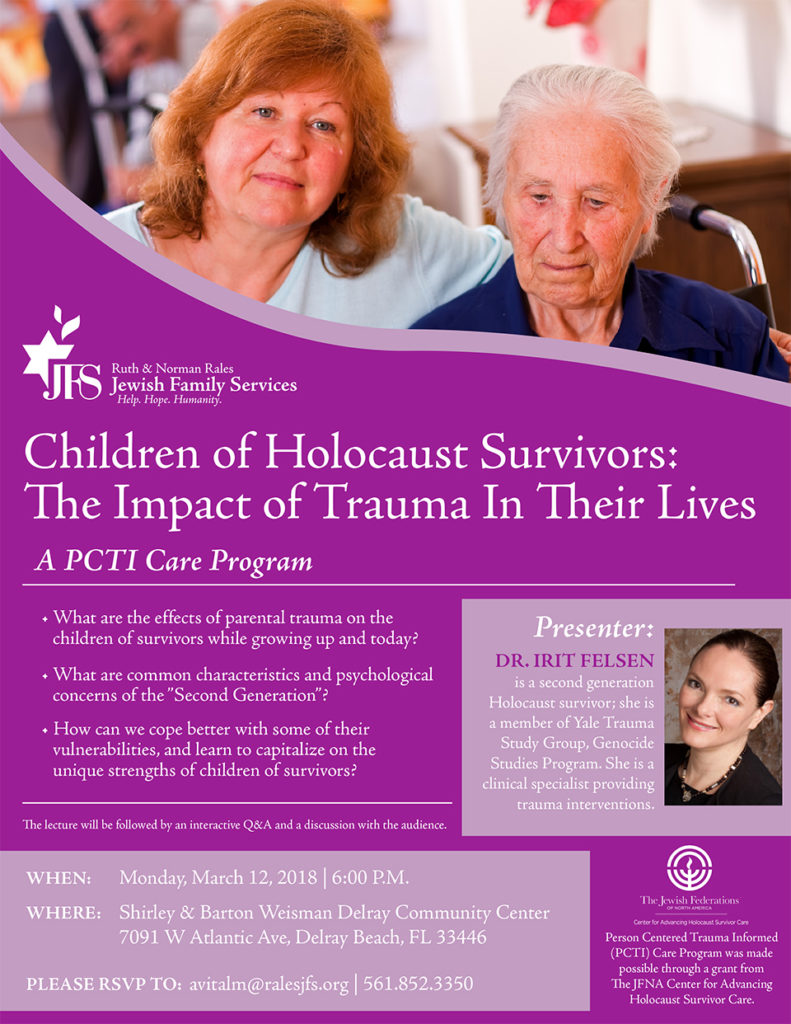On March 12-13, I will be giving a workshop focused on the care of aging Holocaust Survivors and their families, at the Ruth & Norman Rales Jewish Family Services in Boca Raton, Florida. The workshop will open with a presentation to the clinical staff, which will address the generational impact of multiple types of traumatic experiences in the family, the long-term effects of distal trauma on the survivors and their family members, as well as assessment and treatment challenges and suggested strategies for working with elderly trauma survivors.
The second, agency-wide, non-clinical training session will be geared towards all agency staff, including the marketing department, front office receptionists, transportation drivers, and all others. This training will educate participants on trauma, its effects on survivors, and how to appropriately and sensitively communicate with trauma survivors while providing services to them. This training will teach staff how to best meet the unique needs of trauma survivors, whether these survivors are our clients, colleagues, family members, or others we interact with on a daily basis. Many people have survived some sort of trauma in their lives and have been impacted by it to varying degrees, and this training will help normalize this, explain how to understand our reactions to our own traumatic experiences and to the experiences of others, and offer ways in which to best interact with trauma survivors.
In the evening on Monday Mar. 12, there will be a meeting open to the public, in which I will give a lecture about intergenerational transmission of trauma, with an emphasis on how empirically and clinically observed characteristics of the second generation, which have accumulated in the literature over the past several decades, are manifested in their lives today and how to enhance resilience, capitalize on strengths, and improve relationships and well-being as they approach their own aging. The lecture will be followed by a Q&A session and a discussion with the audience.

On the second day, there will be a focus group of Holocaust Survivors and local Case Managers, aimed at hearing the Survivors’ own perspective in order to improve the services available to them. The information gained during the focus group will provide the Person-Centered Trauma-Informed (PCTI) team with more knowledge about the survivors’ experiences and how they deal with them on a daily basis. This focus group can also be an opportunity for Holocaust survivors to discuss any issues with professionals in their community who may not yet be trauma informed and could benefit from PCTI training.
More information about the public event on Monday Mar. 12, including how to register to attend, can be found from this link.
Irit Felsen
